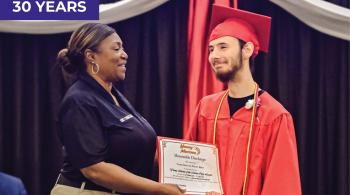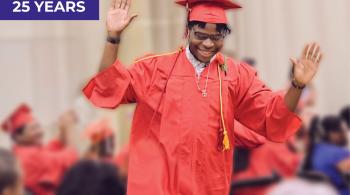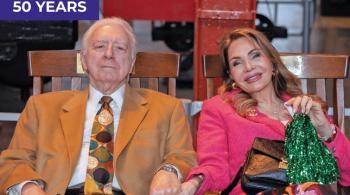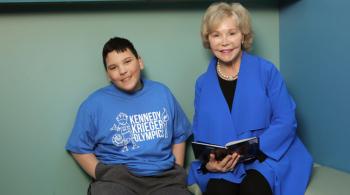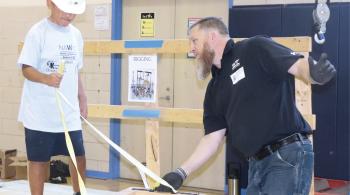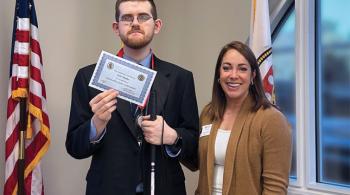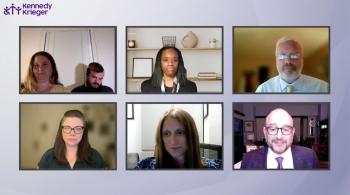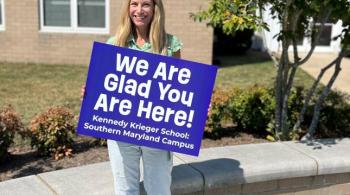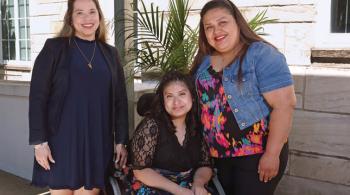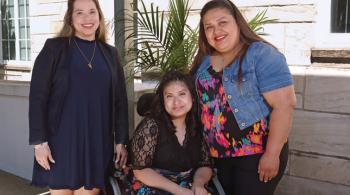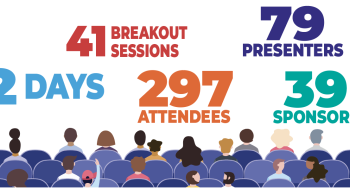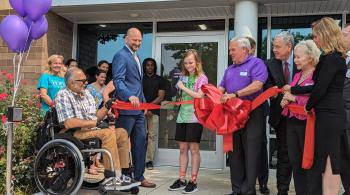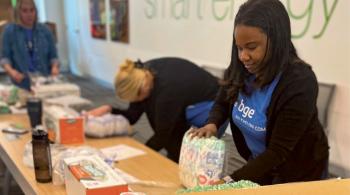By Laura Thornton
While Kennedy Krieger Institute focuses primarily on treating and educating children and adolescents, its aim is to provide them with the support and services they need to live their adult lives as independently and fully as possible.
“The hard work that we do on behalf of children, teens and young adults sets them up to live their best possible life,” explains Dr. Bradley L. Schlaggar, president and CEO of Kennedy Krieger. “We’re setting them up for a lifetime of experiencing the sense of self-worth that can come through employment, independence and engagement with the community.”

Kennedy Krieger School Programs provide special education services to about 500 students a year from more than a dozen counties in the Maryland and Washington, D.C., region and with a range of neurodiverse differences, conditions and disabilities. Each student has an individualized education program designed specifically to meet their needs. And over the past few years, the Institute has expanded its services to support young adults with disabilities as they transition from school to adulthood.
The Institute’s Meaningful Community Services program helps individuals with disabilities obtain and maintain meaningful employment and community engagement through a person-centered approach, explains Stacey Herman, the Institute’s director of postsecondary services. Those services include Project SEARCH at Kennedy Krieger Institute, an internship program; CORE Foundations, which provides individualized services supporting independence; and CORE Foundations Community Programming, which offers community integration and social engagement through a series of events and activities.
From School to Work—And Beyond
One of the roles of the Institute’s Meaningful Community Services is to help employers welcome individuals with neurodiverse conditions into the workplace. Kennedy Krieger has worked with more than 30 businesses and organizations in the Mid-Atlantic region, helping them tailor interview processes for—and communicate and collaborate in the workplace with—individuals with neurodiverse conditions.
Our vision of inclusion is to think about where our students will be across their lifetime."
– Dr. Aaron Parsons
“We stress the value that individuals with neurodiverse conditions bring to the workplace,” Herman says. Research shows that individuals with some conditions, including autism spectrum disorder and dyslexia, can have special skills in memory, mathematics or pattern recognition, she adds.
“There’s also value to employers in recognizing the intangibles that come with having a neurodiverse workplace,” Dr. Schlaggar says. “That influences how other employees come to understand their workplace and recognize the richness of experiences that comes from meaningful interactions at work with individuals with neurodiverse conditions.”
The Intersection of Race and Disability
“Many of our students come from diverse racial and ethnic backgrounds, and for them to succeed, it’s important for them to have teachers and other professionals who look like them, and who have a deep understanding of how social determinants affect health and quality of life,” says Dr. Aaron Parsons, vice president of school programs at Kennedy Krieger. The same goes for books and other educational materials. “We’re currently undertaking a review, to look for unintentional bias in all facets of our schools.”

And with people of color often disproportionately targeted by law enforcement, “our school community has an ongoing concern that when our students are in public, they may interact in ways that are different from other people, and be misunderstood by law enforcement,” making public awareness critical, Dr. Parsons says.
Over the years, Dr. Parsons and his colleagues have had many discussions with students and parents about the intersection of race and disability in the community—because ultimately, the goal of Kennedy Krieger School Programs is to give individuals with neurodiverse conditions and disabilities a chance to make their way in the world.
“Our vision of inclusion is to think about where our students will be across their lifetime,” Dr. Parsons says. “If they’re engaging with their community, working and living as independently as possible, then we’ve succeeded.”


